Ever wondered, "Do cats like music?" As cat owners, we're familiar with their unique behaviors, but what about their musical tastes?
This article explores the intriguing world of feline auditory preferences.
We'll explore the science behind cats' reactions to music, discuss the potential benefits of music for cats, and provide tips on creating a cat-friendly playlist.
Stay tuned with us as we uncover whether our furry friends share our love for melodies and how we can enhance their lives through music.
Understanding Cat's Auditory Perception
To understand how cats perceive music, it's essential to grasp their auditory capabilities and how they differ from those of humans.
Explanation of a Cat's Hearing Capabilities
Cats possess a powerful sense of hearing, allowing them to detect even the faintest sounds.
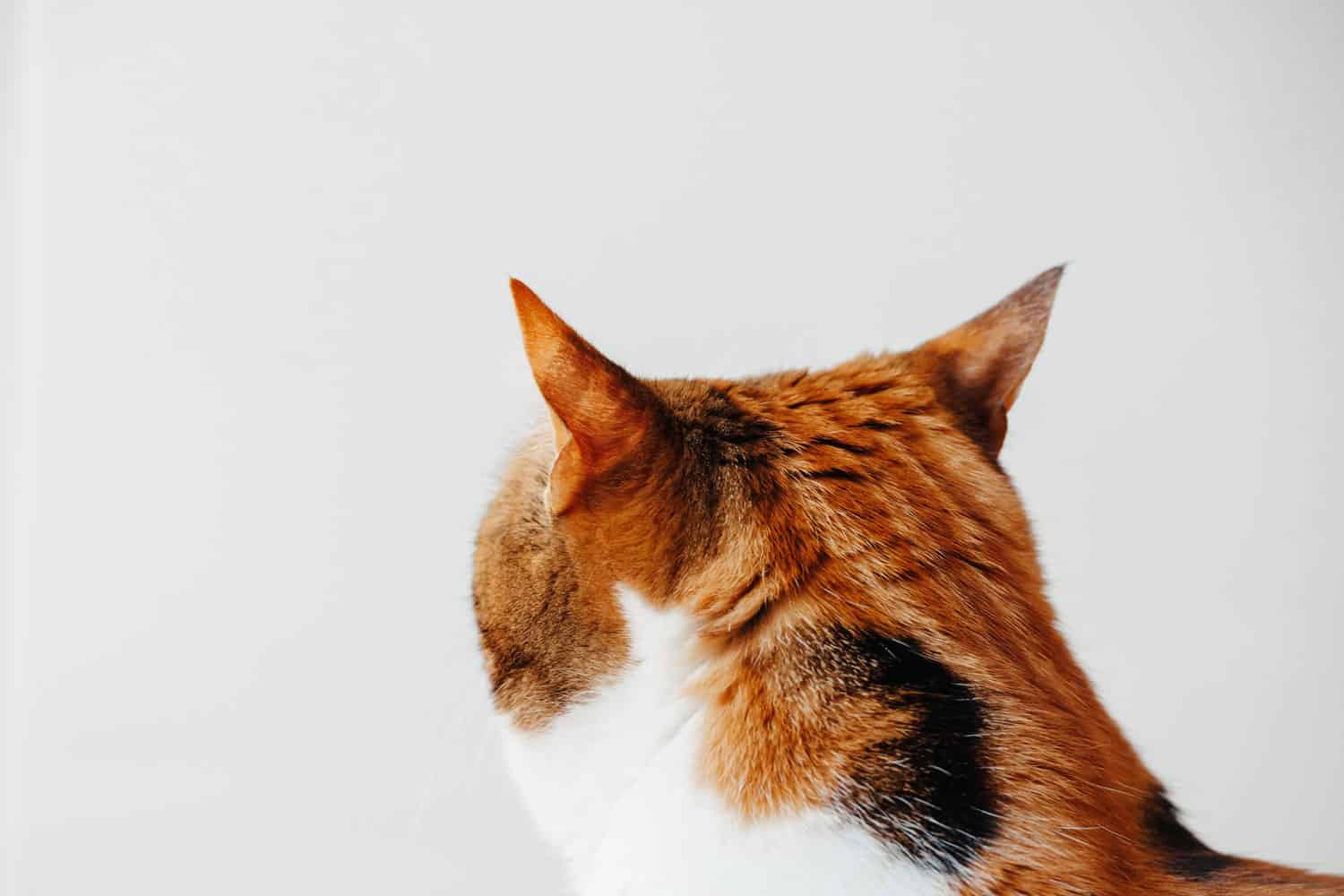
Their hearing range is much broader than that of humans due to the unique structure of their ears, which are designed to capture sounds from the environment efficiently.
The large, upright shape of a cat's ears maximizes their ability to capture sounds with precision.
Their hearing prowess gives them an advantage in hunting prey and avoiding potential threats.
Comparison of Human and Cat Hearing Ranges
While human hearing ranges from 20 Hz to 20,000 Hz, cats have an impressive range of 48 Hz to 65,000 Hz.
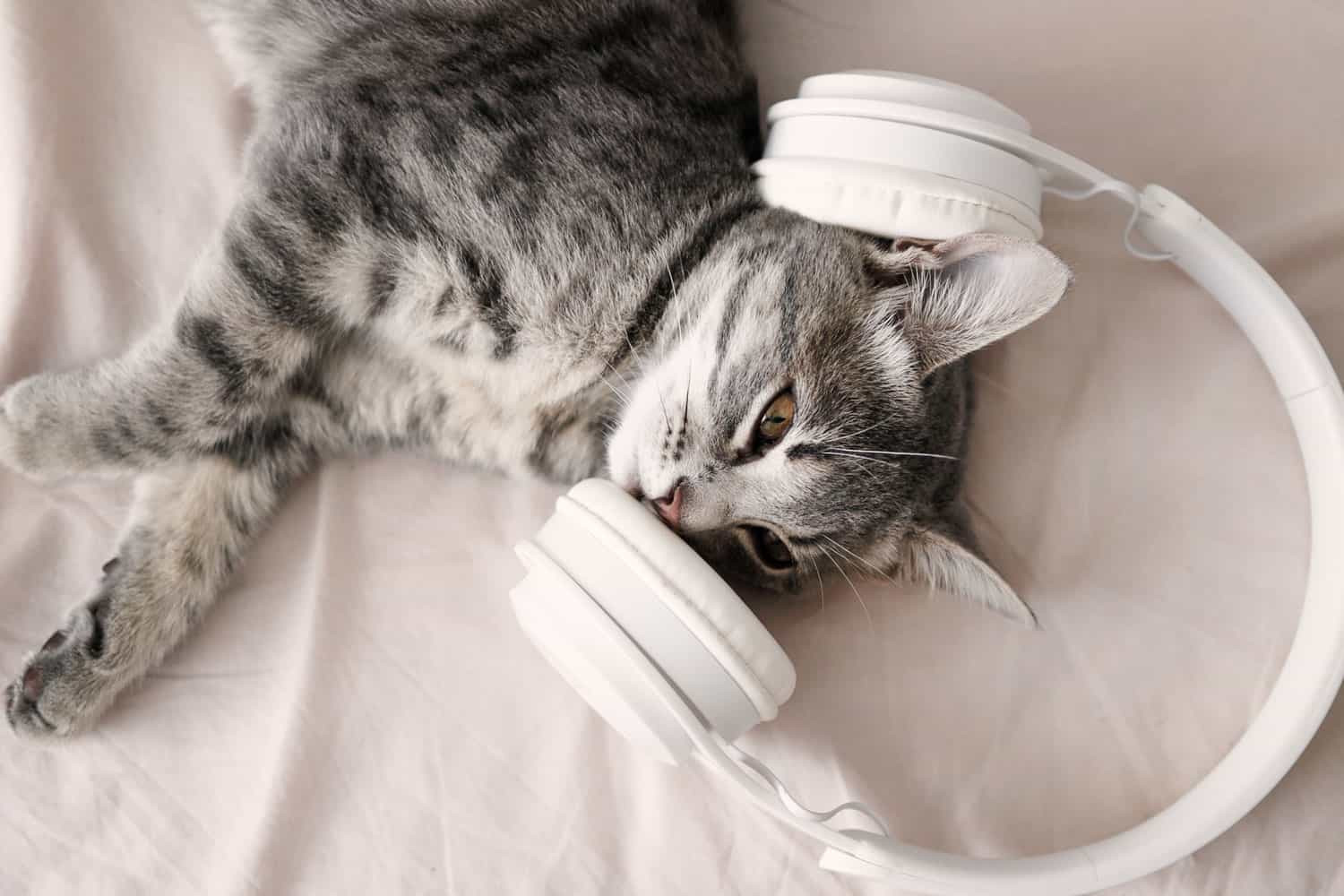
This difference in hearing capabilities means cats can pick up high-pitched sounds that humans may not even be aware of.
However, this doesn't necessarily imply that your cat appreciates music the same way as you.
Studies on Cats and Music
We'll explore the research on cats and music, interpret the findings, and shed light on how tunes affect our feline friends.
Summary of Scientific Studies Conducted on Cats and Music
Various studies have been conducted to investigate the potential effects of music on cats' behavior and well-being.
These studies often explore different types of music - from classical to specially designed "cat music" - to determine if certain genres or compositions have a more significant impact on our furry companions.
One such study, conducted by researchers at the University of Wisconsin, found that cats in a shelter setting were more likely to approach a speaker playing species-specific "cat music" than one playing classical music, such as Bach or Fauré.
Analysis of the Results and Findings
From the studies, it's evident that cats do show a preference for certain types of music.
It seems as though "cat music," or compositions specifically designed with feline ears in mind, tends to have the most significant effect on cats.
These tunes often mimic the frequency, rhythm, and tempo of natural cat vocalizations and can lead to cats displaying more relaxed and content behaviors.
However, it's worth noting that not all cats will have the same response to music.
Types of Music Cats May Prefer
Cats can be quite particular about their preferences, and music is no exception.
Just like humans, cats have varying tastes in music.

While some cats seem disinterested in human music, others may show a preference for certain genres like classical or soft instrumental sounds.
Providing your cat with a variety of music to explore can help enrich their environment and keep them relaxed and engaged.
Examples of Music Specifically Composed for Cats
A growing trend among pet owners is the production of music specifically designed for cats.
Composers like David Teie have dedicated their efforts to creating music that caters to the natural instincts and preferences of cats.
This music often incorporates elements such as purring, high-pitched bird sounds, and gentle rhythms that mimic a cat's natural environment.
It's a fantastic way to provide your feline friend with a unique auditory experience that's tailored just for them.
How to Introduce Music to Cats
Introducing your beloved cat to music can be a fun and engaging experience.
With the right approach, you can create a harmonious relationship between your kitty and their listening environment.
Tips on How to Play Music for Cats
1. Start Slowly
Begin with soft, calming music that is low in volume.
Gradually increase the volume and potentially transition to different genres to gauge your cat's preference.
2. Consider Cat-Specific Music
As already discussed that kitties react positively to musical tunes composed specifically for them.
These melodies tend to mimic feline communication, for example, cat purrs or chirps.
3. Observe Your Cat's Behavior
Keep an eye on your cat's demeanor while playing music.
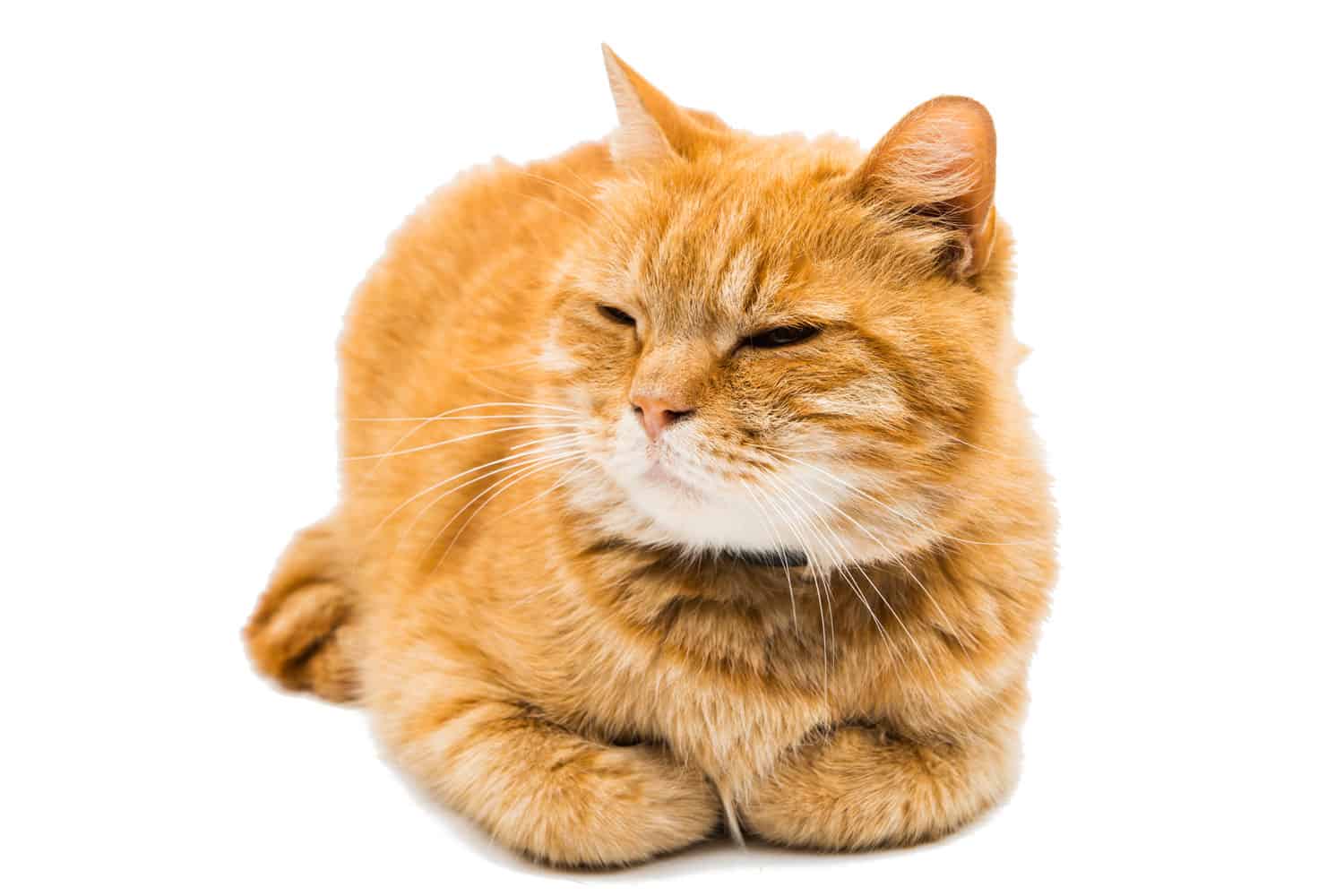
If they relax or appear content, you may have found a winner.
Conversely, if they exhibit anxiety or distress, it might be time to change the track.
4. Balance Music Volume for Pet Comfort
Keep in mind that music should not be played too loudly or continuously, as that could lead to stress and discomfort for your pet.
Signs to Look for to Determine if Your Cat is Enjoying the Music
1. Relaxed Body Language
A relaxed cat will lie down, stretch out, or close their eyes.
These signs indicate that they are enjoying the music and feel comfortable in the environment.
2. Slow Blinking
Cats often perform slow blinks as a sign of trust and contentment.
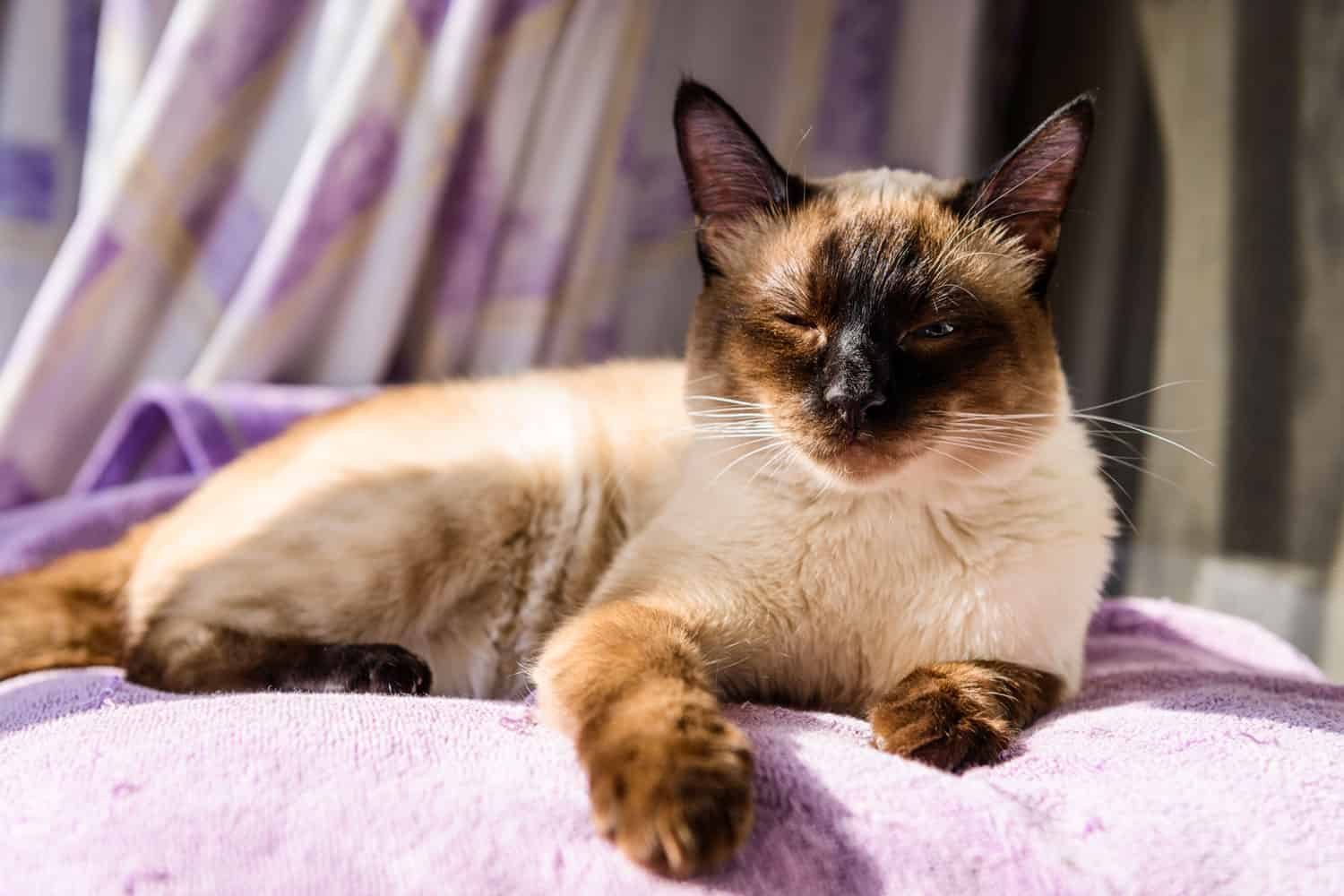
If your cat is slowly blinking during a music session, it's likely that they enjoy the music.
3. Purring
Perhaps the most obvious sign of a happy cat is purring.
While some cats purr when they're stressed, it's generally a good indicator that your cat enjoys the music.
Potential Benefits of Music for Cats
Cats are known for their sensitive hearing, and while they may not react to music the same way humans do, certain music can potentially have significant benefits for our feline friends.
Exploring the Calming Effects of Music on Cats
You might have noticed that your cat seems to relax when you play some genres of music.
This could be because music has the power to affect our emotions as well as those of our pets.
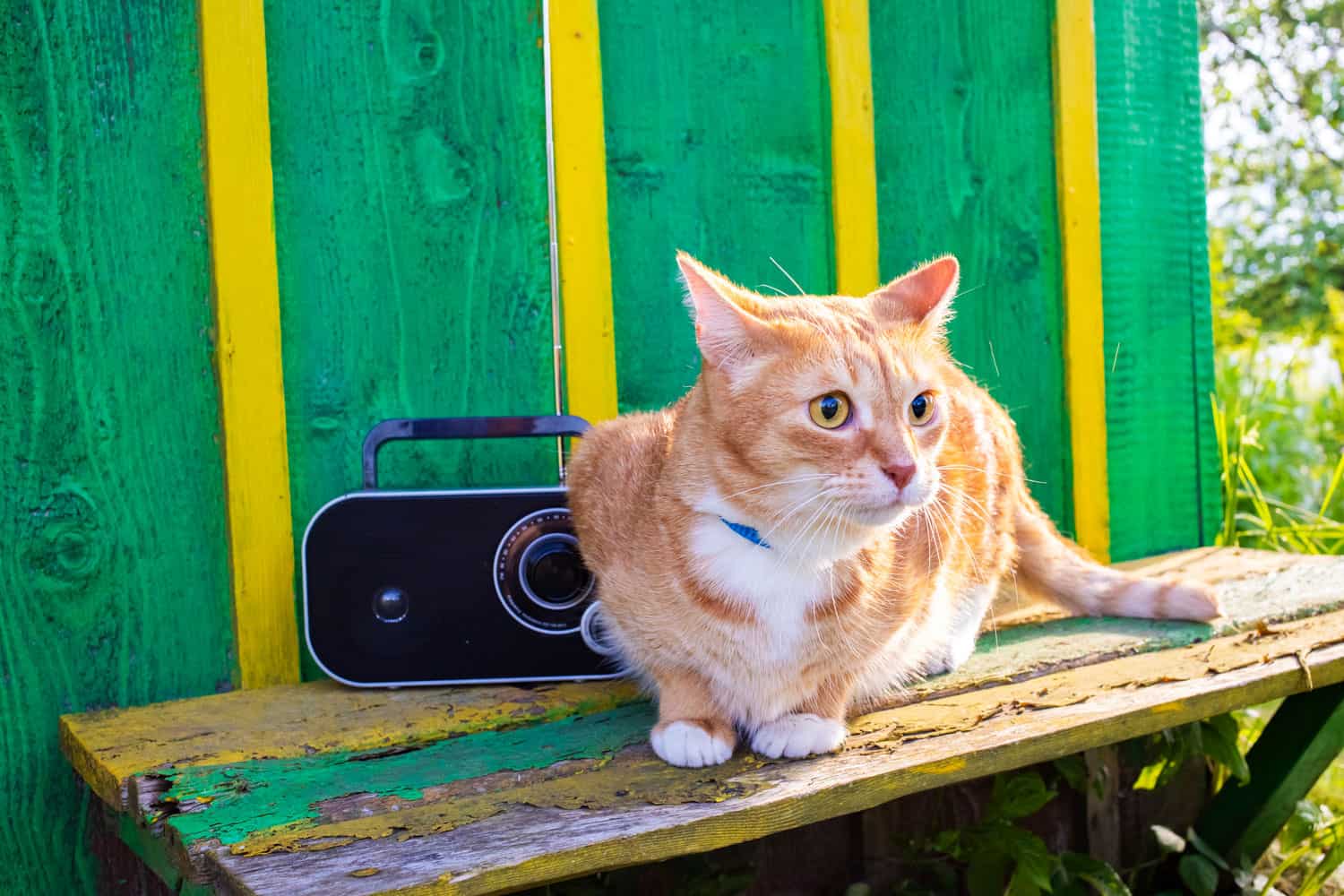
Music and the brain have a strong connection, and certain tunes can evoke feelings of calm and comfort in cats.
To help create a peaceful environment for your cat, you can experiment with different types of music and observe their reaction.
Ideally, you should look for slow, soothing tunes that can create a serene atmosphere and minimize any external noise.
Use of Music for Cats with Anxiety or Stress
Cats can experience anxiety and stress for various reasons.
In such cases, the use of music can potentially play a significant role in helping your furry companion cope with these feelings.
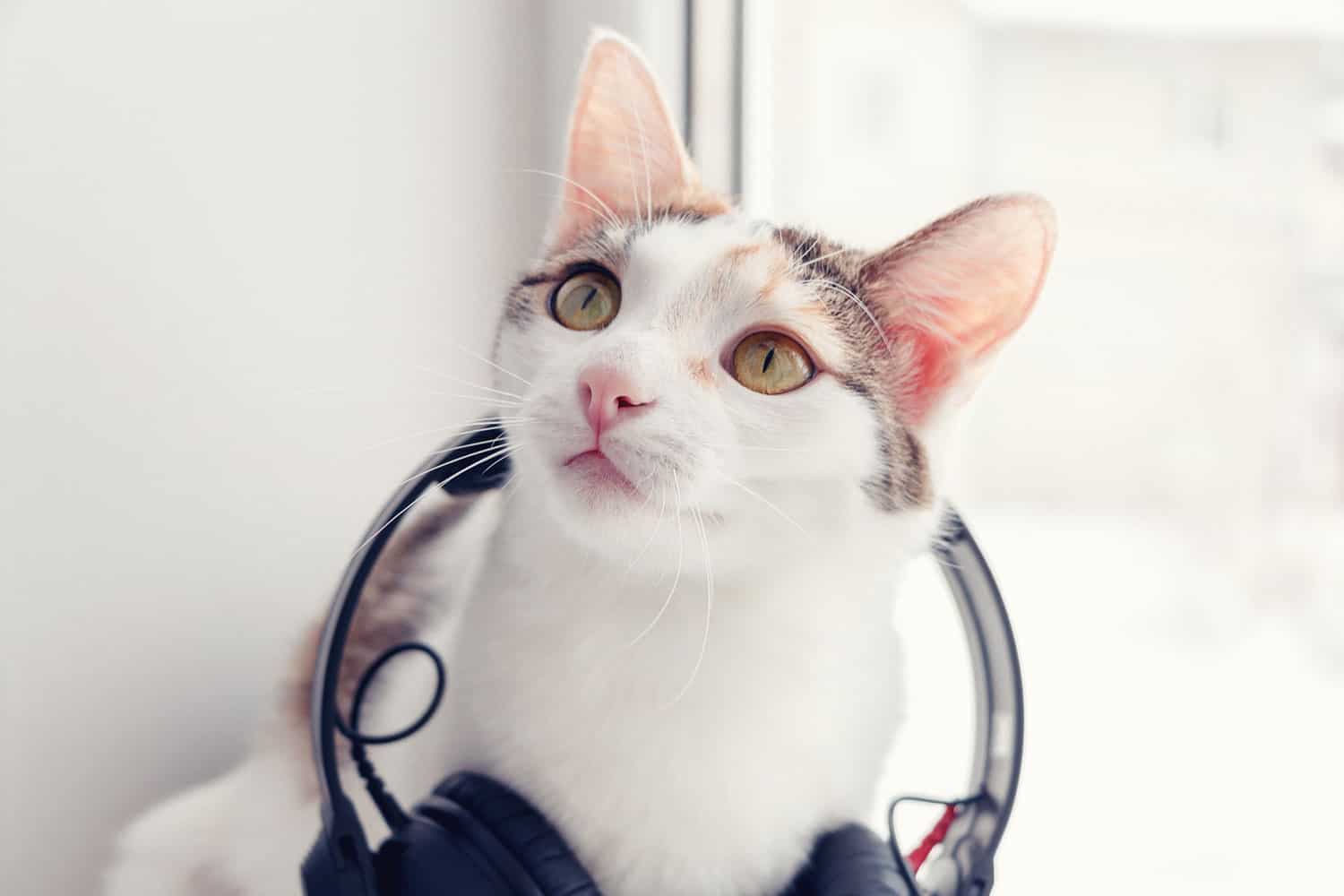
Highly empathic people have higher brain activation when listening to familiar music they like, and cats may experience similar reactions.
When selecting music to play for your anxious or stressed cat, look for melodies with slow rhythms and lower frequencies.
You can even find specialized tunes composed explicitly for your furry friend to help keep them calm.
Regularly incorporating such music in your cat's daily routine can create a comforting ambiance, reducing their stress levels and making them feel more secure in their environment.
A Melodic Bond with Your Furry Friend
Playing music can be an enjoyable experience that helps you feel more connected to your cat.
As science reveals, music might even become a pathway to strengthening your bond by adding a new layer of understanding and appreciation between the two of you.
Though they may not bop along to our favorite songs, they can still experience a sense of comfort and connection in melodies tailored to their natural instincts.
Exploring the world of cat-friendly music could introduce an exciting element to your relationship, fostering a deeper bond with your furry friend.
Remember, the goal is to entertain your cat and keep them happily engaged as you grow closer along the way.
Be amazed by our collection of fascinating stories about cats. Take a look below and discover something new!
Siri, Play My Jam: The Amazing Cat That Controls Music with His Meow
Cat Can Tell Time and It’s Hilarious – Tick Tock Meow!
Some elements on this page may have been created by our team using advanced AI to provide you with top-notch cat inspired ideas. Read more about our AI Content Policy.
